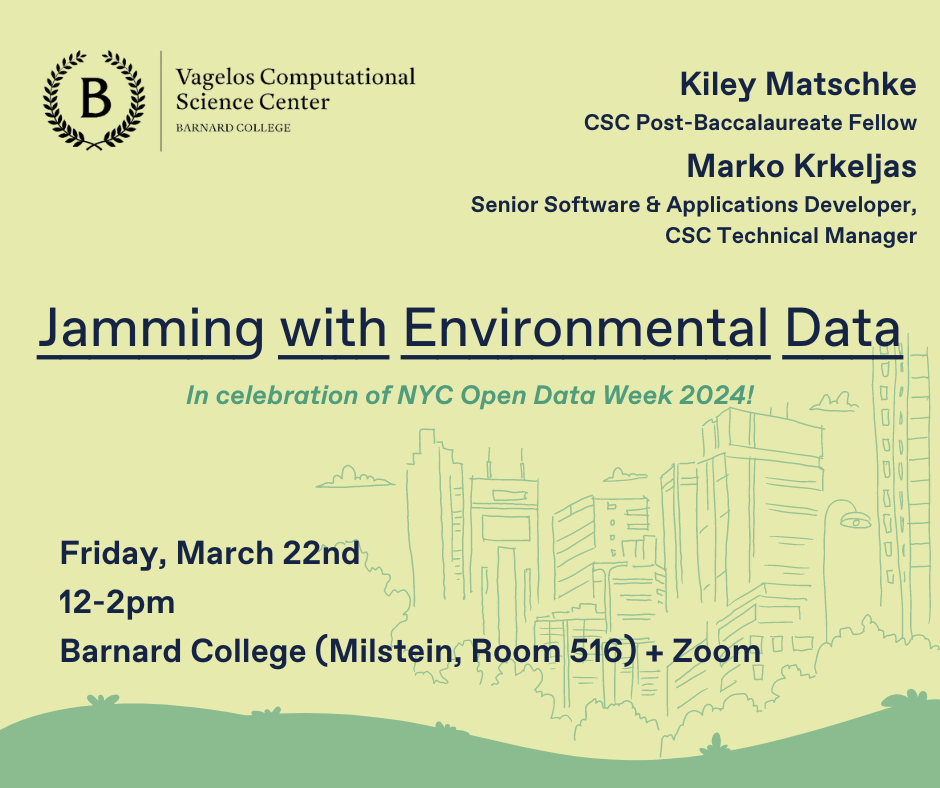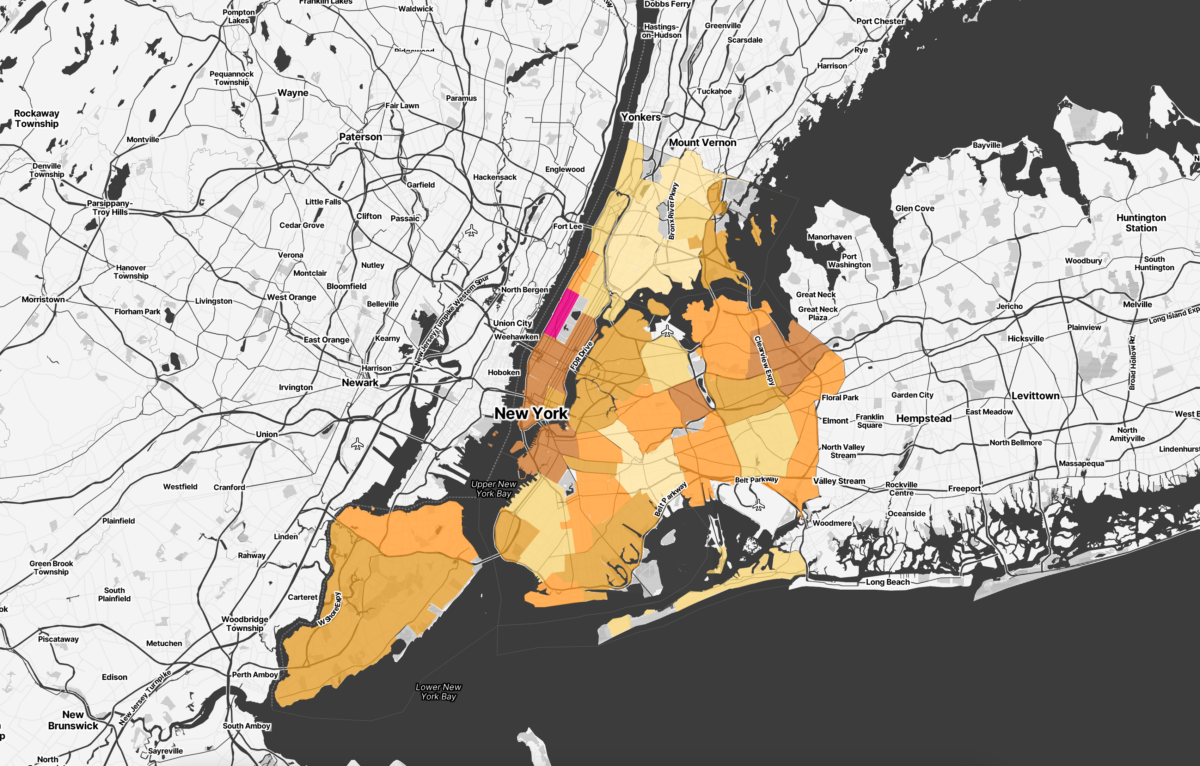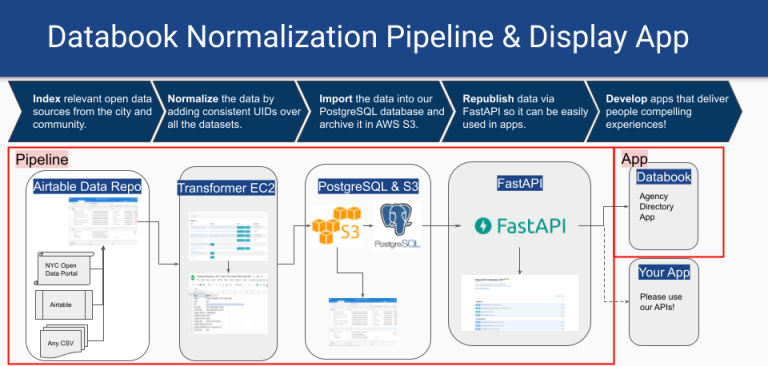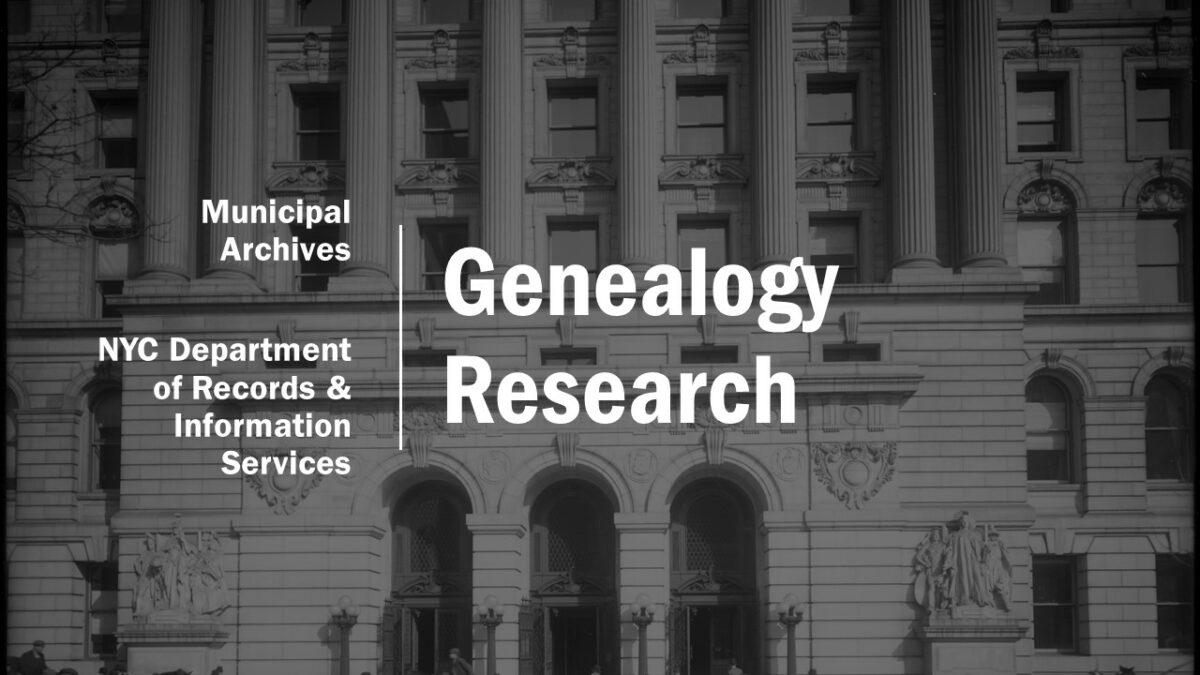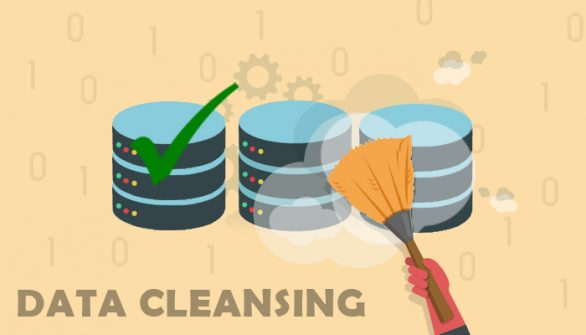Presenters ⭐️
Kiley Matschke (Post-Baccalaureate Fellow at Barnard College’s CSC),
Marko Krkeljas (Senior Software & Applications Developer and CSC Technical Manager at Barnard College)
Event details 📊
Join us in celebrating NYC Open Data Week at Barnard College’s Vagelos Computational Science Center (CSC)! This two-part workshop and data jam will explore data analysis and visualization utilizing NYC environmental data. In the first half of this workshop, participants will explore ChatGPT’s data capabilities and contrast them with their own analyses via Google Co-lab. In the second half, participants will work in small groups to ideate and produce creative, accessible projects that showcase their data findings (i.e., in the form of collages, songs, stories, etc.). This workshop will explore the importance of data presentations and their impact on viewer perceptions. Those from all backgrounds and coding levels are welcome, beginner-friendly. Register here!
Location 📍
This will be a hybrid event!
Important note: Attendees who are not affiliated with Barnard College or Columbia University are strongly encouraged to attend this event via Zoom. This is due to increasingly strict/fluctuating policies surrounding campus access for the general public.
In-person location: Barnard College, Milstein Center Room 516 (5th Floor); 3009 Broadway, New York, NY 10027
Online location: Zoom (Register here to receive the link, which will be emailed in advance of the event)

